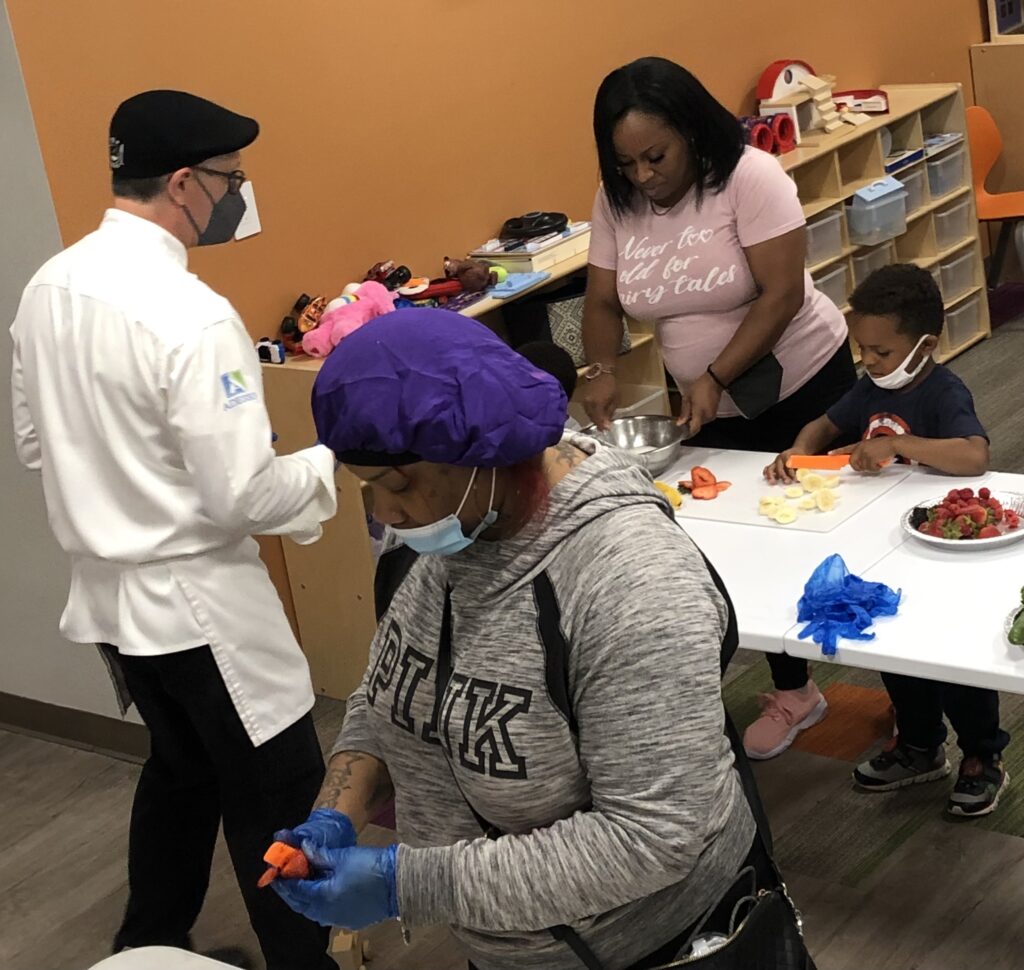Source: Special to Michigan News
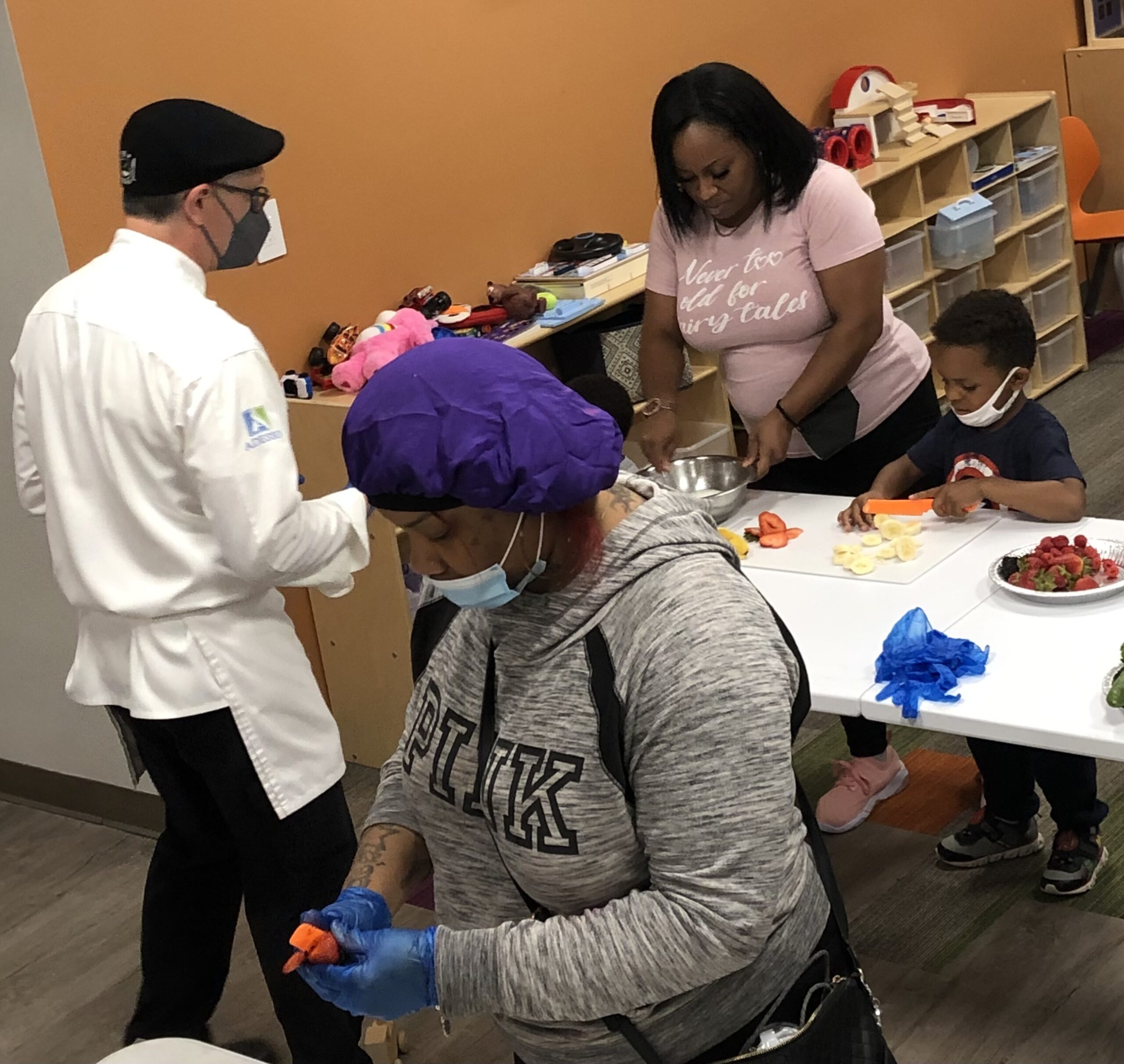
Jeremy Abbey, from Soil2Service, leads a cooking workshop for COTS families. Photo courtesy of COTS.
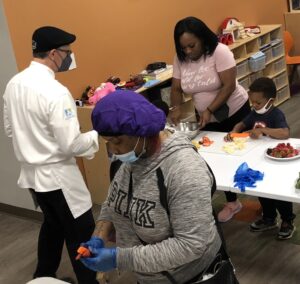
Jeremy Abbey, from Soil2Service, leads a cooking workshop for COTS families. Photo courtesy of COTS.
With 7% of Detroit residents struggling to maintain a place to live at the end of 2021, the city’s emergency shelters and homelessness response are key. COTS, formerly known as the Coalition On Temporary Shelter, plays a pivotal role in addressing the immediate needs of people experiencing homelessness and supporting them in moving from generational poverty to prosperity.
COTS’s emergency family shelter served more than 170 families in 2021, and the nonprofit maintained affordable housing for 77 households plus supportive housing services for another 211 households last year. All of COTS’s programming incorporates a Passport to Self Sufficiency coaching framework that provides families with individualized support in achieving their goals related to housing and family stability, financial empowerment, health and well-being, education and training, and employment and career.
As COTS celebrates its 40th anniversary, Delphia Simmons, chief impact and learning officer, and Nikki Carbonari, senior director of strategic partnerships, reflected on the organization’s work.
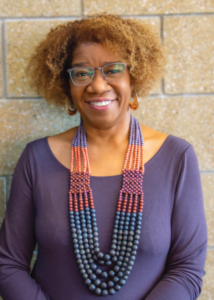
Delphia Simmons
What are you excited to be working on now?
Carbonari: We’re getting more involved in addressing the root causes of homelessness and poverty, instead of working on only the direct service side. We’ve been so entrenched in that because of the nature of working with people who are experiencing homelessness. Our advocacy initiatives are taking more of a step back and broader view of what’s going on in the Detroit landscape and then advocating for policies that will support people proactively, before they’re at our doors.
Simmons: It’s always been important to us to hear the families’ and the clients’ voices. We hold listening sessions where we invite people in and they listen to the people we serve, their stories, and what they want to say about how they got where they are. Now we’re being very intentional about including client voices in this policy piece and advocacy piece.
Can you tell us about a project you worked on with the University of Michigan?
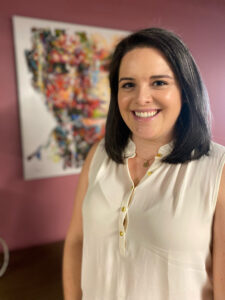
Nikki Carbonari
Carbonari: Almost every year, for about 10 years, we have had at least one Master’s of Social Work intern from U-M’s School of Social Work. I was an MSW intern placed at COTS. We have two others who interned and now work at COTS too, so it’s become this informal employee pipeline. Most of our interns are macro-level social workers, so they focus a lot on data evaluation.
Another project is CENI (Clinical Ethnographic Narrative Interview) that we did with the School of Nursing in 2017 with Dr. Barbara Brush and Dr. Laura Gultekin. They met with our participants to test out CENI, which is basically a narrative therapy method for understanding and reflecting on one’s trauma and how it’s affected where they are today. That was a really interesting project and helped us start to understand the impact of trauma. We knew a lot of our families – and our staff too – experienced complex trauma. This was sort of our first look into it more scientifically. Now we’re incorporating more training and more intentionality behind how we can serve people who have experienced trauma.
What did you value most about your partnerships with U-M?
Carbonari: U-M brings a lot of innovation, education, and research to us. We are more of a direct service nonprofit, so we don’t have that research arm. While we try to stay on top of cutting-edge innovation, our U-M partners are able to bring a lot of that to us. It’s great having students; of course they’re learning from us and we learn a lot from them, too. It’s nice to get fresh opinions, especially on data and advocacy because that’s an ever-changing field with new ways to advocate and new ways to collect data.
Simmons: I was always very impressed with the way U-M engaged our program participants. You could sense there was a respect for their time and information. It wasn’t “we’re going to swoop in, do our research, and bolt.” That’s been the reputation of some universities. But you could definitely tell the difference, even to the point where they compensated people for their time. We appreciated that.
What advice would you give to other organizations interested in partnering with U-M?
Simmons: I would say do it. Sometimes you don’t know what you don’t know. So even engaging with a conversation with U-M to see what they offer, something might emerge.

